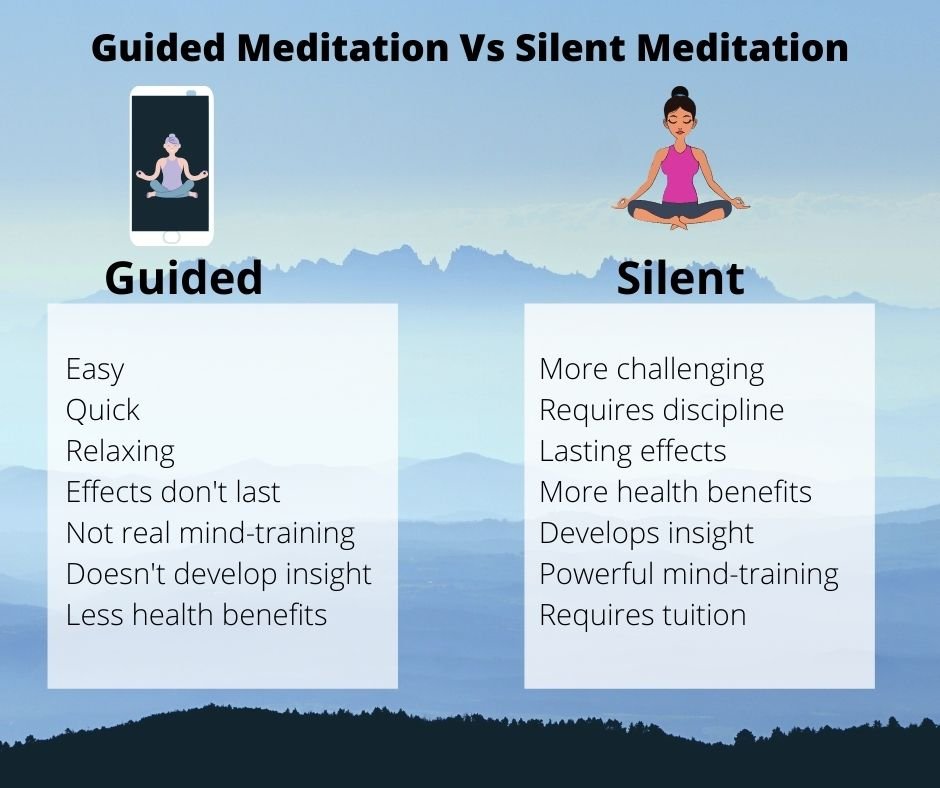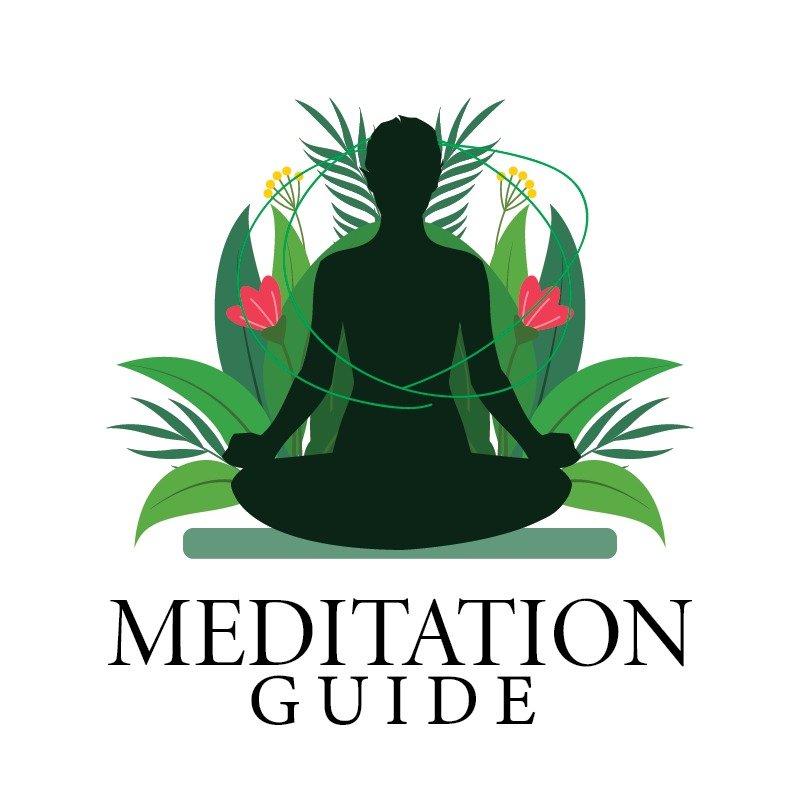
Meditation has become mainstream in recent years. From yoga to zen, meditation options abound. But what is the difference between guided and unguided meditations?
One of the major differences is that guided meditations give you step-by-step instructions on how to meditate while an unguided meditation simply gives you the option of practicing on your own.
Guided meditations may be more helpful for beginners who want guidance or for people who are struggling with mental health issues like anxiety, depression, PTSD, etc.
Here, are some reasons to consider trying guided meditation.
What is Guided Meditation?
When people talk about guided meditation, they’re often referring to the different techniques that can be used. Music, imagery, and even a trained practitioner can all help you achieve a deeper state of relaxation.
Whether you’re looking to learn how to meditate on your own or with the help of a guide, you’re sure to find the perfect technique to help you achieve your goals.
There are many types of guided meditation available, and some of them can be difficult to master, but the results can be very beneficial.
Guided meditation is a good way to learn more about the technique and its benefits. Although it’s not as easy as practicing on your own, it can be a great way to learn more about the benefits of meditation and its positive effects.
For beginners, you can start by observing the moment, then gradually building your practice. It’s also a good idea to put your phone away or put the computer in a quiet area, as it’s important not to overdo it.
Is Guided Meditation Good As Normal Meditation?
Many people don’t feel comfortable sitting in silence, so guided meditation is a good alternative for them. However, if you can’t relax and are worried about losing concentration, you can use a manual to help you.
While this is a great option, it may not be appropriate for everyone. If this is not for you, a guide can help you achieve the benefits of guided meditation.
Some guided meditation programs are a great way to begin the practice, especially if you’re not accustomed to sitting in silence. They also provide a teacher’s assistance in introducing the techniques.
Most guides ask people to focus on a specific muscle group and a healing light, so you can imagine the experience. While you are meditating, you may want to consider asking the instructor to lead the session.
Some people prefer it, while others swear it’s useless. It’s important to note that this type of meditation is not the same as hypnosis. It may even cause anxiety in some individuals.
Apart from being more effective for some, guided meditation can even be a great place to start your practice. While it’s not the same as hypnosis, it’s a very effective way to get started in meditation.
Is guided meditation as effective as normal meditation? The answer depends on your personal preference and your goals. You may want to start off with a traditional meditation if you don’t know how to meditate. This way, you can get the benefit of guided meditation.
It’s not difficult to get the most out of guided meditation. It’s a good idea to find a guide who understands the basics of the practice. If you’re a novice, you may find it easier to try a simple, yet effective guided meditation.
It’s definitely better than normal meditation. It’s more effective than both. It’s important to follow the instructions carefully. You should not follow the instructions or listen to the guide.
This will help you focus and achieve a sense of inner peace. It’s also better than normal meditation, so it’s worth it. There’s no need to feel uncomfortable with a different type of technique when doing it.
What is the Difference Between Guided and Unguided Meditation?
While both involve focus and mindfulness, there are some differences between guided and unguided meditation. The difference between guided and unguided meditation is the amount of time and attention that a guide pays to the patient.
The difference between guided and unguided meditation is not as stark as it might seem. There are some forms of meditation that help cultivate qualities like lovingkindness, joy, and acceptance, while others help cultivate the more abstract qualities of awareness and calmness. However, guided meditation is more likely to cause frustration than unguided. If you are a beginner, it may not be the best choice.
Unlike traditional meditation, guided meditation is a practice that is taught by a trained instructor. It teaches the listener to loosen attachment to thoughts and emotions.
Both forms of meditation use the body, scent, and sound to create a soothing environment. The difference between the two types of meditation is the amount of time spent on each form.
Some guided meditations are longer than others and are usually conducted on a large, comfortable chair.
Although the benefits of both types of meditation are similar, there are some major differences. Some types are suited for beginners, while others are more for more experienced practitioners. Both types will include a number of different meditation techniques.
One will be more suitable for beginners and have a better chance of acclimatizing to the practice. The second type will involve a more advanced level of concentration and discipline.
Guided meditation is a guided activity that a practitioner follows to reach a goal. The purpose of guided meditation is to make the practitioner aware of their goal, and the intention of the meditation process.
This type of meditation requires more advanced skills and knowledge. In addition, silent meditation is a more private experience. Both are effective at reducing stress and promoting health. In fact, some people prefer a silent meditation over a guided one.
What is the difference between guided and unguided meditation? Both types of meditation require the practitioner to focus on the mind and develop positive qualities. They both involve focusing on different aspects of themselves. Similarly, they can benefit from the different benefits of each.
Do Guided Meditations Have the Same Benefits As
The benefits of meditation are not the same for everyone. While you may not experience the same deep relaxation after practicing silent meditation, you can benefit from guided meditations if you want to develop a deeper awareness of yourself.
While it is important to be fully aware of your surroundings while meditating, guided meditations can help you to improve your attention span. You will learn to embrace words and phrases spoken, and your attention span will improve.
While bringing back control to your mind, guided meditations can help you with anxiety, stress, and depression. While traditional meditations may require more discipline and a solid foundation, guided meditations can help people take back control of their minds and develop a more positive outlook on life. You can even practice the same techniques with a guide, and you will enjoy the same rewards.
Although Guided Meditations are different than Free Meditation, they are a great option for beginners who are unfamiliar with meditation. In addition to the same benefits, you can also practice the same techniques.
Guided meditation can benefit your overall well-being. A guide will guide you to a deep meditative state that will help you feel refreshed and relaxed. You will be able to experience the same benefits as you would in a real-world meditation.
It can increase your emotional stability and reduce stress. It is also effective for helping you achieve physical and mental clarity. Once you get used to it, you’ll be able to meditate more easily.







